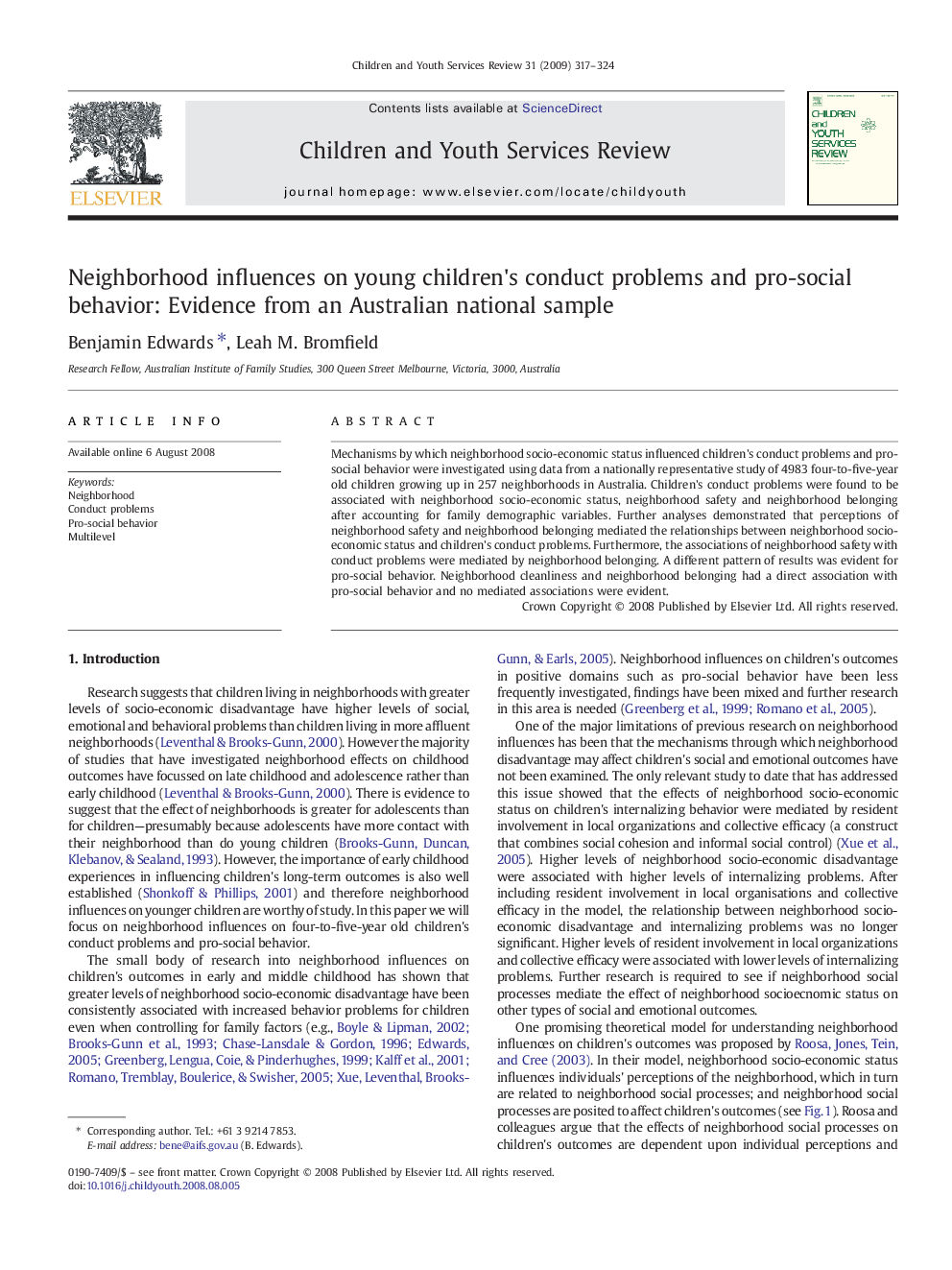| Article ID | Journal | Published Year | Pages | File Type |
|---|---|---|---|---|
| 346887 | Children and Youth Services Review | 2009 | 8 Pages |
Mechanisms by which neighborhood socio-economic status influenced children's conduct problems and pro-social behavior were investigated using data from a nationally representative study of 4983 four-to-five-year old children growing up in 257 neighborhoods in Australia. Children's conduct problems were found to be associated with neighborhood socio-economic status, neighborhood safety and neighborhood belonging after accounting for family demographic variables. Further analyses demonstrated that perceptions of neighborhood safety and neighborhood belonging mediated the relationships between neighborhood socio-economic status and children's conduct problems. Furthermore, the associations of neighborhood safety with conduct problems were mediated by neighborhood belonging. A different pattern of results was evident for pro-social behavior. Neighborhood cleanliness and neighborhood belonging had a direct association with pro-social behavior and no mediated associations were evident.
